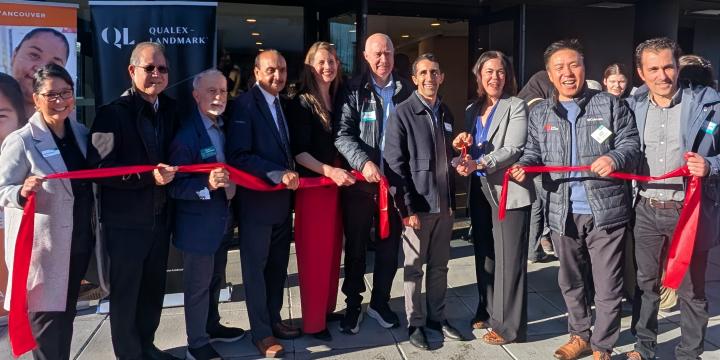
International Migrants Day: Challenges and Support for Newcomers
International Migrant Day is acknowledged each year on December 18 and is a chance to raise awareness of the impact migrants have on building thriving communities as well as the disproportionate challenges they face, particularly in recent years due to the COVID-19 pandemic.
“Migrants contribute their knowledge, networks, and skills to build stronger, more resilient communities” - United Nations
According to Statista, Canada currently welcomes 300,000 new immigrants each year - one of the highest rates per population of any country in the world.
As of 2020, there were more than 8 million immigrants with permanent residence in Canada, making up 21.5 percent of Canada’s population or the equivalent of 1 in 5 people.
On top of the many issues that newcomers face when transitioning to a new country, struggles like cultural adjustment, language barriers, food insecurity and employment challenges have been further amplified by the pandemic. With the lack of family supports and community networks, immigrants can feel particularly isolated and without a safety net during this turbulent time.
An RBC report also found that the immigrant wage gap in Canada has widened over three decades. Immigrants earn disproportionately less than their Canadian-born counterparts, with the gap peaking at 18% for those aged 45-54 with a university education.
Newcomers also tend to work in lower-paid occupations relative to their education due to their foreign experience often being discounted, certifications invalidated or skills deemed non-transferrable. As a result, this also contributes to increasing gender disparity for these families, as lower household incomes mean less immigrant women can afford child care and are actively removing themselves from the labour market.
“On this International Migrants Day, let us seize the opportunity of the recovery from the pandemic to implement the Global Compact for Safe, Orderly and Regular Migration, reimagine human mobility, enable migrants to reignite economies at home and abroad and build more inclusive and resilient societies.”
- UN Secretary-General António Guterres
It’s important to realize the systemic barriers that migrants face and be able to provide support. We recognize this need at the YWCA, and below is a list of the programs and services we provide to support immigrants and newcomers:
Specialized YWCA Programs and Services to Support Migrants
Support for Job Seekers
YWCA Afghan Women's Employment
YWCA Afghan Women's Employment (AWE) is an employment and training program that supports Afghan refugee women in exploring and securing careers or further education in Canada.
YWCA Aspire is a free 12-week program that assists immigrant or refugee women in gaining new skills, training opportunities and valuable work experience.
YWCA Axis is a one-to-one employment program for immigrant women who have experienced domestic violence. This 12-week, trauma-informed program helps participants develop an employment or training plan to achieve sustainable employment or further education.
Support for Women who have Experienced Abuse
The YWCA Japanese Outreach Program assists and supports female Japanese nationals who live or are physically located in Canada outside of the Jurisdiction and are dealing with abuse from an intimate partner or homestay situation.
Resources for Parents
This group is led in Spanish for Latin immigrant mothers, offering monthly sessions on parenting, settlement, cultural adaptation, services available and self-care. The group hosts volunteer facilitators from community partners, provides a healing space and reduces barriers while creating community connections.

